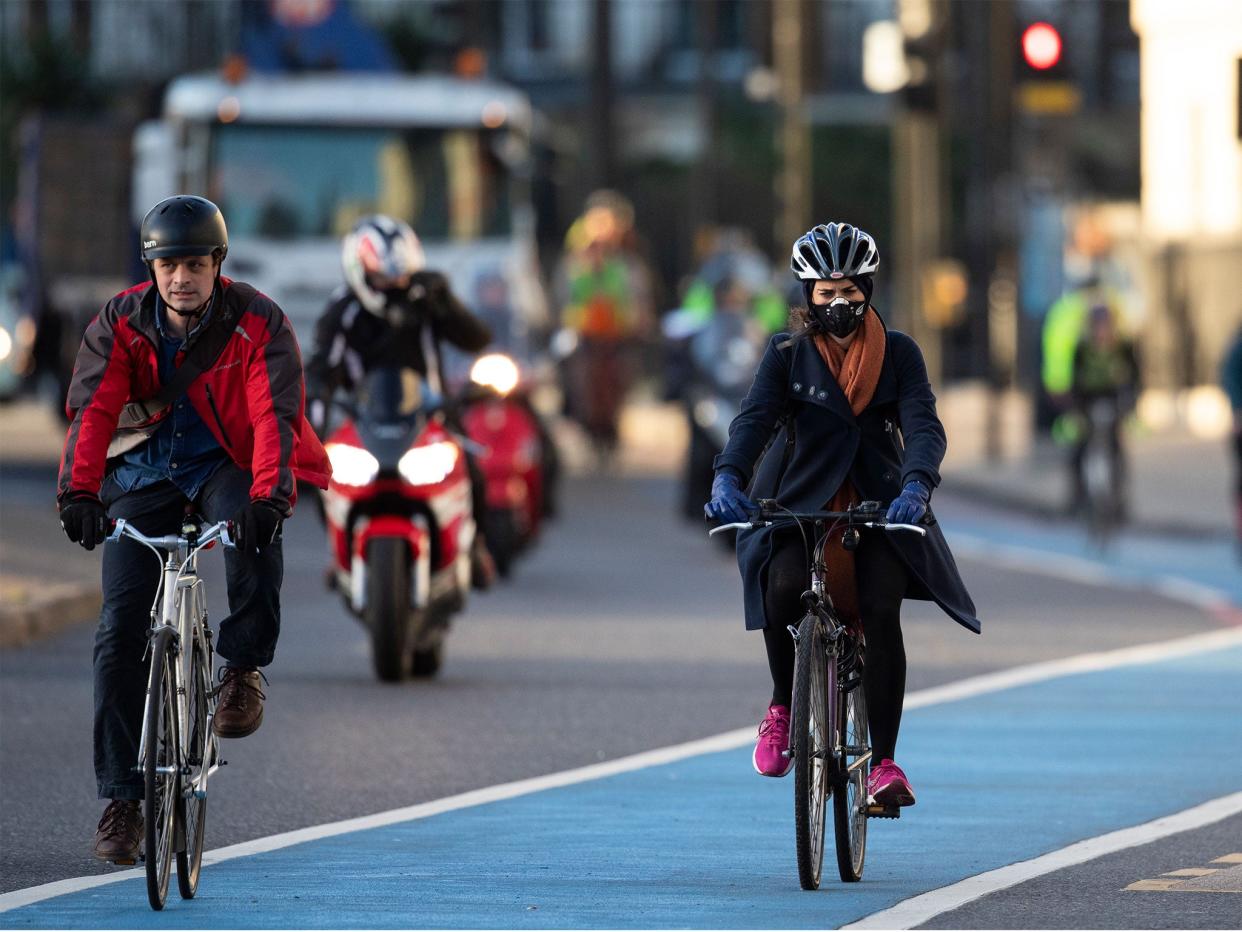The Tories say they are serious about cycling - but their manifesto says otherwise

The genius of Donald Trump and Boris Johnson is that they know that there are now large swathes of the population who don’t care if their favoured politician tells untruths or not.
This new politics was in evidence at the national cycle hustings at the modern Brompton bike factory in west London on 3 December, when minister for transport Chris Heaton-Harris declared that the Tory manifesto pledge to spend £70m per year more on cycling across England “would be transformative”.
He added: “It allows communities to build proper safe cycling lanes, giving confidence to commuters, parents, and fair-weather cyclists like myself.”
His department estimates that a protected cycleway can cost £1.5m per kilometre. The UK has 47,000 km of main roads and 344,000 km of paved roads in total. So 46 km is hardly a drop in the ocean.
What is disturbing is that he knows that saying it will be “transformative” was untruthful, yet he spouted it at the national hustings anyway, to an audience he knew would know he was being untruthful. He knew his voters would not care.
When challenged on the paucity of their funding, he ranted about how, unlike the other parties, there was no money tree in the Tory manifesto and that £70m “was a realistic and bold pitch.”
But this was another untruth. The Tory government will have given more than £84,000m in fuel duty cuts to motorists by the end of the current budget forecast period, while they raised public transport fares.
In addition, their manifesto promises another £30bn for new roads, compared to a puny £350m for cycling over the next five years.
The UN recommends that 20% of government transport budgets should be invested in active travel. It argues that this is needed to tackle the millions of people dying every year from traffic pollution, diseases related to inactivity and road traffic accidents. A quarter of global carbon emissions come from road transport and cycling has a key role to play in reducing these emissions. In England, 68% of journeys are under five miles, which are doable by bike by most people and 75% under 10 miles, which are possible by e-bike.
Aside from its damaging effect on the climate emergency, the health impacts of the UK’s failure to invest in a national cycleway are devastating – 26,000 people are killed or seriously injured on the UK’s roads every year. While 5.4 million people now suffer from asthma, with over 12,700 deaths in England and Wales over the last decade. Traffic pollution is a known trigger for asthma.
Also, 64% of adults are clinically obese or overweight, leading to a plethora of diseases including type 2 diabetes. There are now 4.6 million people suffering from diabetes in the UK.
Yet, the positive health benefits of cycling are staggering. A University of Glasgow study reported that people who cycled to work had a 41% lower risk of death from all causes than people who drove or took public transport. They had a 52% lower risk of dying from heart disease and 40% lower risk of dying from cancer.
In the UK, the UN 20% recommendation would equate to about £7bn a year out of the £35bn transport budget for cycling. In previous general elections, only the Green Party was promising billions, with a £2bn pledge in 2017. The Labour Party’s 2017 cycling manifesto was a carbon copy of the very poor Tory cycling pledges.
This led to general election protests outside the Labour and Tory Party HQs by the pressure group Stop Killing Cyclists. After that election, Labour Cycles was founded and lobbied hard for the 2019 Labour manifesto be more radical on cycling. This paid off when Labour announced a £2.74bn a year cycling investment and the Lib Dems trumped both the Greens and Labour with a £3.5bn a year manifesto commitment following lobbying by Cycling UK.
Clearly there is now de facto a cross-party cycling alliance in this election facing off against a Tory party refusing to tackle the pollution, obesity and climate crises affecting Britain. We should therefore vote tactically to stop Boris Johnson – check out tactical.vote to find out which candidate is best placed to beat the Conservatives in your constituency.
If enough of us do this, we could wake up on Friday morning with a prime minister who will champion action on climate and cycling. Now that would be a welcome victory for truth in politics.
Donnachadh McCarthy is an environmental campaigner.

 Yahoo News
Yahoo News 
